Schooldays Over, Come on Then John
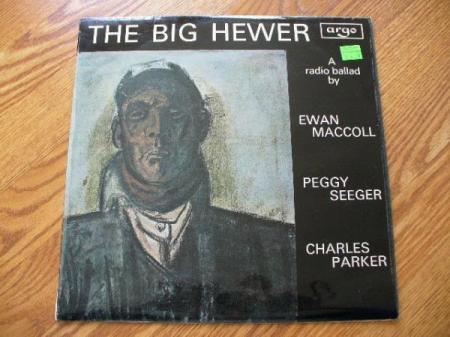
[1960]
Parole di Ewan MacColl
Musica di Ewan MacColl e Peggy Seeger
In "The Big Hewer - A Radio Ballad About Britain's Coal Miners", trasmissione radiofonica in onda nel 1960 sulla BBC Radio, prodotta da Charles Parker (1919-1980), scrittore, cantante ed attore teatrale. Il disco è del 1967, poi riedito nel 1999.
Si tratta della quarta di otto emissioni curate da MacColl e dalla Seeger tra il 1957 ed il 1964.
La coppia si avvalse della collaborazione di artisti prestigiosi, come Dave Swarbrick, A. L. Lloyd, Ian Campbell, Isla Cameron e Louis Killen.
Interpreta da molti, tra cui i Dubliners, i Chieftains, Dick Gaughan, Damien Dempsey, i Clancy Brothers,...
Pitman e collier sono entrambi sinonimi di miner, tre modi diversi che l'inglese ha per indicare il minatore del carbone...
Parole di Ewan MacColl
Musica di Ewan MacColl e Peggy Seeger
In "The Big Hewer - A Radio Ballad About Britain's Coal Miners", trasmissione radiofonica in onda nel 1960 sulla BBC Radio, prodotta da Charles Parker (1919-1980), scrittore, cantante ed attore teatrale. Il disco è del 1967, poi riedito nel 1999.
Si tratta della quarta di otto emissioni curate da MacColl e dalla Seeger tra il 1957 ed il 1964.
La coppia si avvalse della collaborazione di artisti prestigiosi, come Dave Swarbrick, A. L. Lloyd, Ian Campbell, Isla Cameron e Louis Killen.
Interpreta da molti, tra cui i Dubliners, i Chieftains, Dick Gaughan, Damien Dempsey, i Clancy Brothers,...
Pitman e collier sono entrambi sinonimi di miner, tre modi diversi che l'inglese ha per indicare il minatore del carbone...
Schooldays over, come on then John
(continua)
(continua)
inviata da Bernart Bartleby 29/1/2018 - 21:42
The Green Fields of England
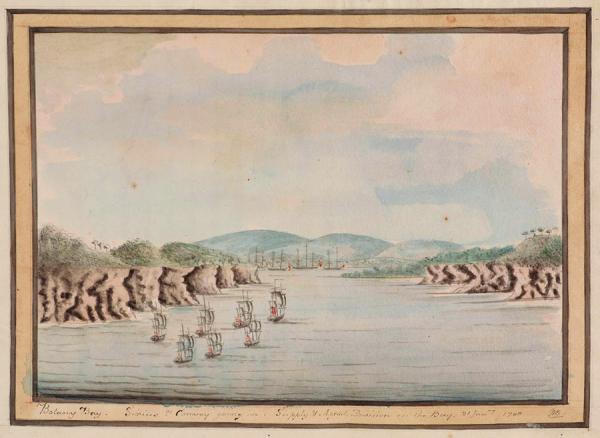
1977
The Transports
This unique project relates the true story of Henry Cabell and Susannah Holmes, convicts transported to Australia on the “First Fleet” in 1787 and the trials and tribulations which culminated in that historic voyage. The tale is presented as a cycle of new compositions in the idiom of traditional English folk song, linked by narrative passages in the style and to the melodies of broadsheet ballads of the time. The orchestral passages and arrangements for the accompanied songs have been conveived in such a way as to underline the overall feeling of “period” and the instruments used are those likely to have been heard in the church bands or “quires” of East Anglian villages in those days. The singers have been chosen from the front rank of the English folk song revival, and the melodies composed to suit their individual style. A detailed account of the historical background... (continua)
The Transports
This unique project relates the true story of Henry Cabell and Susannah Holmes, convicts transported to Australia on the “First Fleet” in 1787 and the trials and tribulations which culminated in that historic voyage. The tale is presented as a cycle of new compositions in the idiom of traditional English folk song, linked by narrative passages in the style and to the melodies of broadsheet ballads of the time. The orchestral passages and arrangements for the accompanied songs have been conveived in such a way as to underline the overall feeling of “period” and the instruments used are those likely to have been heard in the church bands or “quires” of East Anglian villages in those days. The singers have been chosen from the front rank of the English folk song revival, and the melodies composed to suit their individual style. A detailed account of the historical background... (continua)
Farewell to our lovers and our kind relations,
(continua)
(continua)
inviata da Dq82 4/1/2018 - 15:16
The Humane Turnkey

1977
The Transports
This unique project relates the true story of Henry Cabell and Susannah Holmes, convicts transported to Australia on the “First Fleet” in 1787 and the trials and tribulations which culminated in that historic voyage. The tale is presented as a cycle of new compositions in the idiom of traditional English folk song, linked by narrative passages in the style and to the melodies of broadsheet ballads of the time. The orchestral passages and arrangements for the accompanied songs have been conveived in such a way as to underline the overall feeling of “period” and the instruments used are those likely to have been heard in the church bands or “quires” of East Anglian villages in those days. The singers have been chosen from the front rank of the English folk song revival, and the melodies composed to suit their individual style. A detailed account of the historical background... (continua)
The Transports
This unique project relates the true story of Henry Cabell and Susannah Holmes, convicts transported to Australia on the “First Fleet” in 1787 and the trials and tribulations which culminated in that historic voyage. The tale is presented as a cycle of new compositions in the idiom of traditional English folk song, linked by narrative passages in the style and to the melodies of broadsheet ballads of the time. The orchestral passages and arrangements for the accompanied songs have been conveived in such a way as to underline the overall feeling of “period” and the instruments used are those likely to have been heard in the church bands or “quires” of East Anglian villages in those days. The singers have been chosen from the front rank of the English folk song revival, and the melodies composed to suit their individual style. A detailed account of the historical background... (continua)
Part 1
(continua)
(continua)
inviata da Dq82 4/1/2018 - 15:08
The Ballad of Henry and Susannah

1977
The Transports
This unique project relates the true story of Henry Cabell and Susannah Holmes, convicts transported to Australia on the “First Fleet” in 1787 and the trials and tribulations which culminated in that historic voyage. The tale is presented as a cycle of new compositions in the idiom of traditional English folk song, linked by narrative passages in the style and to the melodies of broadsheet ballads of the time. The orchestral passages and arrangements for the accompanied songs have been conveived in such a way as to underline the overall feeling of “period” and the instruments used are those likely to have been heard in the church bands or “quires” of East Anglian villages in those days. The singers have been chosen from the front rank of the English folk song revival, and the melodies composed to suit their individual style. A detailed account of the historical background... (continua)
The Transports
This unique project relates the true story of Henry Cabell and Susannah Holmes, convicts transported to Australia on the “First Fleet” in 1787 and the trials and tribulations which culminated in that historic voyage. The tale is presented as a cycle of new compositions in the idiom of traditional English folk song, linked by narrative passages in the style and to the melodies of broadsheet ballads of the time. The orchestral passages and arrangements for the accompanied songs have been conveived in such a way as to underline the overall feeling of “period” and the instruments used are those likely to have been heard in the church bands or “quires” of East Anglian villages in those days. The singers have been chosen from the front rank of the English folk song revival, and the melodies composed to suit their individual style. A detailed account of the historical background... (continua)
Part 1
(continua)
(continua)
inviata da Dq82 4/1/2018 - 14:46
Maid on the Shore
anonimo
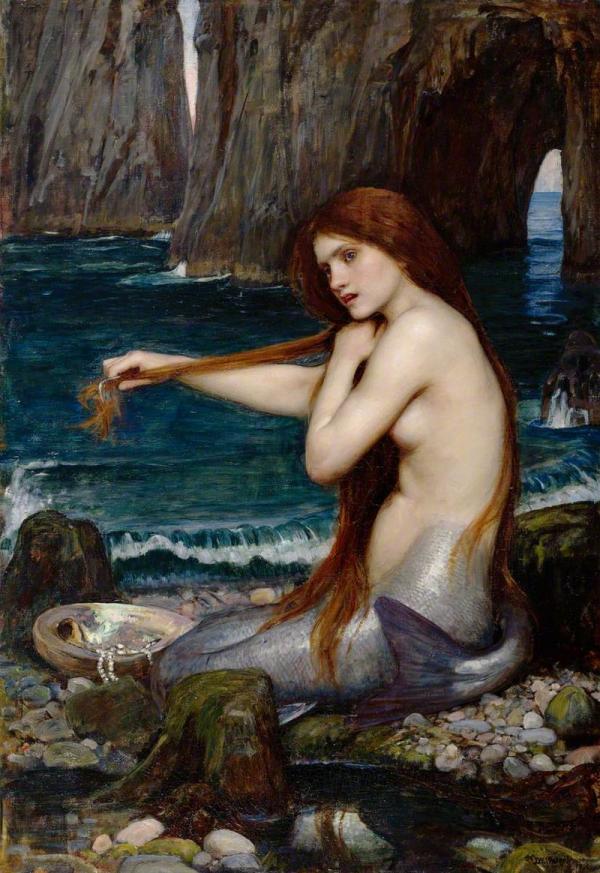
[prima metà dell'800, ma forse ben più antica]
Quello che riporto è il testo della versione della grandissima Frankie Armstrong, dal suo "Lovely on the Water" del 1972, di una delle canzoni tradizionali inglesi più femministe di sempre, al pari di The Crafty Maid's Policy, Lady Maisry, Wreccan wifes ged [The Wife's Lament; The Wife's Complaint] e altre già presenti sul sito.
"Maid on the Shore", o "The Mermaid", è stata incisa anche da A.L. Lloyd, Peggy Seeger, Martin Carthy, Stan Rogers, Cyril Tawney e molti altri artisti
Testo trovato su Mainly Norfolk: English Folk and Other Good Music
Anche questo un bel racconto di riscossa e vendetta femminile contro la meschinità e la brutalità maschili. La ragazza sulla spiaggia – quasi certamente una sirena – accetta docilmente di essere trasportata a bordo della nave di un grezzo capitano, uno che mastica e sputa tabacco e che la saluta senza... (continua)
Quello che riporto è il testo della versione della grandissima Frankie Armstrong, dal suo "Lovely on the Water" del 1972, di una delle canzoni tradizionali inglesi più femministe di sempre, al pari di The Crafty Maid's Policy, Lady Maisry, Wreccan wifes ged [The Wife's Lament; The Wife's Complaint] e altre già presenti sul sito.
"Maid on the Shore", o "The Mermaid", è stata incisa anche da A.L. Lloyd, Peggy Seeger, Martin Carthy, Stan Rogers, Cyril Tawney e molti altri artisti
Testo trovato su Mainly Norfolk: English Folk and Other Good Music
Anche questo un bel racconto di riscossa e vendetta femminile contro la meschinità e la brutalità maschili. La ragazza sulla spiaggia – quasi certamente una sirena – accetta docilmente di essere trasportata a bordo della nave di un grezzo capitano, uno che mastica e sputa tabacco e che la saluta senza... (continua)
Well it's of a sea captain who sailed the salt sea
(continua)
(continua)
inviata da Bernart Bartleby 30/12/2017 - 23:43
The Brown Girl
anonimo
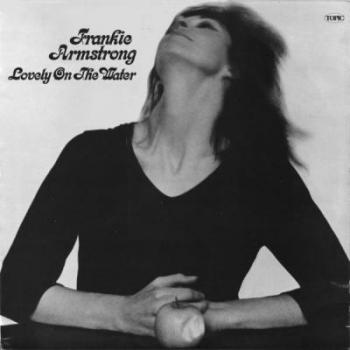
[Child #295A]
Una ballata che contiene echi ad altre sette- od ottocentesche come “Lord Thomas and Fair Eleanor”, “Barbara Allen” e “The Sailor from Dover”
Interpretata innanzitutto da Frankie Armstrong nel suo album “Lovely on the Water” del 1972, poi da Steeleye Span, Martin Carthy, Jon Boden e altri artisti
A proud, vengeful creature, spurned “because she was too brown”. The implication is, she wasn't fine enough, ladies had lilywhite hands, skin as fair as milk; working girls got suntanned and coarsened in the field, unfit for gentlemen. The ballad, containing echoes of Lord Thomas and Fair Eleanor, Barbara Allen, and others, doesn't seem to have been very common it its original form, more or less as Frankie sings it. But in altered shape, in which it is the man, sometimes a sailor, not the girl who is slighted and pitiless, it had wildfire success in England as The Dover Sailor, and... (continua)
Una ballata che contiene echi ad altre sette- od ottocentesche come “Lord Thomas and Fair Eleanor”, “Barbara Allen” e “The Sailor from Dover”
Interpretata innanzitutto da Frankie Armstrong nel suo album “Lovely on the Water” del 1972, poi da Steeleye Span, Martin Carthy, Jon Boden e altri artisti
A proud, vengeful creature, spurned “because she was too brown”. The implication is, she wasn't fine enough, ladies had lilywhite hands, skin as fair as milk; working girls got suntanned and coarsened in the field, unfit for gentlemen. The ballad, containing echoes of Lord Thomas and Fair Eleanor, Barbara Allen, and others, doesn't seem to have been very common it its original form, more or less as Frankie sings it. But in altered shape, in which it is the man, sometimes a sailor, not the girl who is slighted and pitiless, it had wildfire success in England as The Dover Sailor, and... (continua)
“I am as brown as brown can be,
(continua)
(continua)
inviata da Bernart Bartleby 28/11/2017 - 16:11
Norwich Gaol

[1977]
Parole e musica di Peter Bellamy
In “The Transports. A Ballad Opera.”
Con la crema dei folksinger inglesi dell’epoca, tra cui The Watersons, Martin Carthy, Nic Jones, A.L. Lloyd, June Tabor, Martin Winsor, Cyril Tawney e Dave Swarbrick.
Testo trovato su Mainly Norfolk: English Folk and Other Good Music
Un’opera che racconta una storia vera, quella di Henry Cabell e Susannah Holmes, “two poor fellows” che nel 1783 furono condannati alla deportazione per aver commesso dei furti a causa della miseria. I due erano amanti e dalla loro relazione era nato un bimbo ma ai due non fu in un primo momento concesso di sposarsi e la famigliola corse il serio rischio di essere smembrata. Uno dei loro carcerieri s’impietosì e intercesse per loro presso il ministro dell’interno.
Così Henry e Susannah poterono unirsi in matrimonio e nel 1787, dando corso alla sentenza, furono imbarcati con il... (continua)
Parole e musica di Peter Bellamy
In “The Transports. A Ballad Opera.”
Con la crema dei folksinger inglesi dell’epoca, tra cui The Watersons, Martin Carthy, Nic Jones, A.L. Lloyd, June Tabor, Martin Winsor, Cyril Tawney e Dave Swarbrick.
Testo trovato su Mainly Norfolk: English Folk and Other Good Music
Un’opera che racconta una storia vera, quella di Henry Cabell e Susannah Holmes, “two poor fellows” che nel 1783 furono condannati alla deportazione per aver commesso dei furti a causa della miseria. I due erano amanti e dalla loro relazione era nato un bimbo ma ai due non fu in un primo momento concesso di sposarsi e la famigliola corse il serio rischio di essere smembrata. Uno dei loro carcerieri s’impietosì e intercesse per loro presso il ministro dell’interno.
Così Henry e Susannah poterono unirsi in matrimonio e nel 1787, dando corso alla sentenza, furono imbarcati con il... (continua)
The food is foul, the air is bad, the company not choice;
(continua)
(continua)
inviata da Bernart Bartleby 29/4/2015 - 14:02
Geordie, or My Geordie Will Be Hanged In A Golden Chain
anonimo
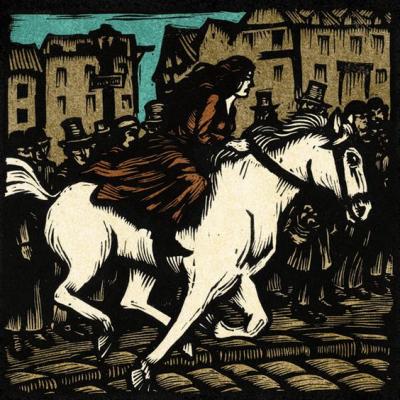
Child #209K
[XVIII secolo / 18th Century / 18ème siècle / 1700-luku]
First Recording in print:
Thomas D'Urfey, Wit & Mirth, or Pills To Purge Melancholy, 1719-1720, Vol. II, p. 49
Prima attestazione a stampa:
Thomas D'Urfey, Wit & Mirth, or Pills To Purge Melancholy, 1719-1720, Vol. II, p. 49
Première attestation imprimée:
Thomas D'Urfey, Wit & Mirth, or Pills To Purge Melancholy, 1719-1720, Vol. II, p. 49
Ensimmäinen painettu todistus:
Thomas D'Urfey, Wit & Mirth, or Pills To Purge Melancholy, 1719-1720, Vol. II, p. 49
Recordings
One of the earliest recorded versions is by Joan Baez, who included a live performance of the song on her first live album in 1962. The Baez version makes it clear that Geordie's crime was poaching the King's deer, for which the penalty was hanging with a silken rope. It has also been recorded by Ewan MacColl, John Jacob Niles, Doc... (continua)
[XVIII secolo / 18th Century / 18ème siècle / 1700-luku]
First Recording in print:
Thomas D'Urfey, Wit & Mirth, or Pills To Purge Melancholy, 1719-1720, Vol. II, p. 49
Prima attestazione a stampa:
Thomas D'Urfey, Wit & Mirth, or Pills To Purge Melancholy, 1719-1720, Vol. II, p. 49
Première attestation imprimée:
Thomas D'Urfey, Wit & Mirth, or Pills To Purge Melancholy, 1719-1720, Vol. II, p. 49
Ensimmäinen painettu todistus:
Thomas D'Urfey, Wit & Mirth, or Pills To Purge Melancholy, 1719-1720, Vol. II, p. 49
Recordings
One of the earliest recorded versions is by Joan Baez, who included a live performance of the song on her first live album in 1962. The Baez version makes it clear that Geordie's crime was poaching the King's deer, for which the penalty was hanging with a silken rope. It has also been recorded by Ewan MacColl, John Jacob Niles, Doc... (continua)
As I walked out over London Bridge
(continua)
(continua)
inviata da Riccardo Venturi 27/11/2007 - 22:49
×
![]()

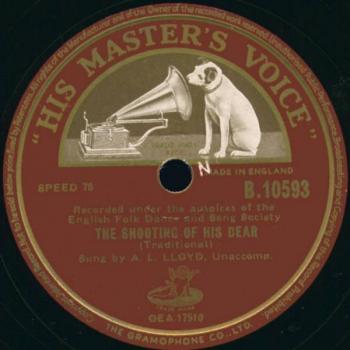

Una canzone popolare irlandese già ben conosciuta – ma disdegnata - da Robert Jamieson (1772 – 1844), antiquario scozzese che nel 1806 curò l'edizione della raccolta “Popular Ballads And Songs From Tradition, Manuscripts And Scarce Editions With Translations Of Similar Pieces From The Ancient Danish Language”.
Le versioni e gli interpreti del brano sono moltissimi, sicchè ho deciso di proporre qui il testo di una delle prime registrazioni, quella di A. L. Lloyd risalente al 1951, come trovata su English Folk Music
Dalla raccolta curata da Peter Kennedy ed Alan Lomax intitolata “The World Library of Folk and Primitive Music: England”, Columbia Masterworks, USA, 1955.
Il tema della donna magica che si trasforma in animale, una bianca cerva, come nella Complainte de la blanche biche, o, come in questo caso, un bianco cigno – e si noti però l'identico candore... (continua)